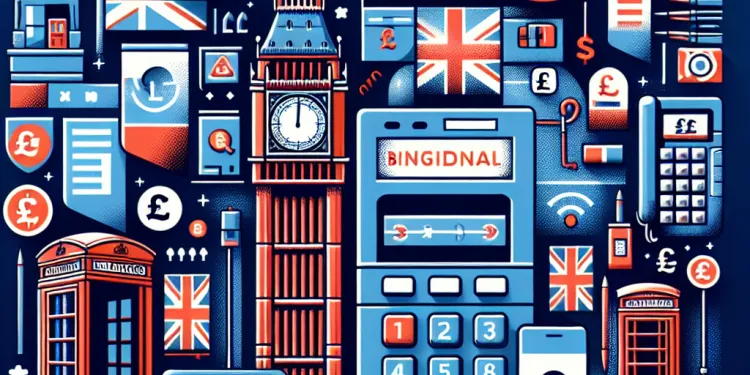
Find Help
More Items From Ergsy search
-
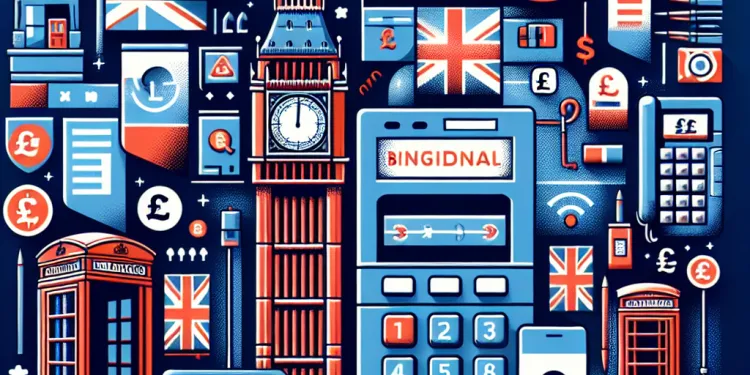
What actions are consumer rights groups taking regarding banking fee transparency?
Relevance: 100%
-
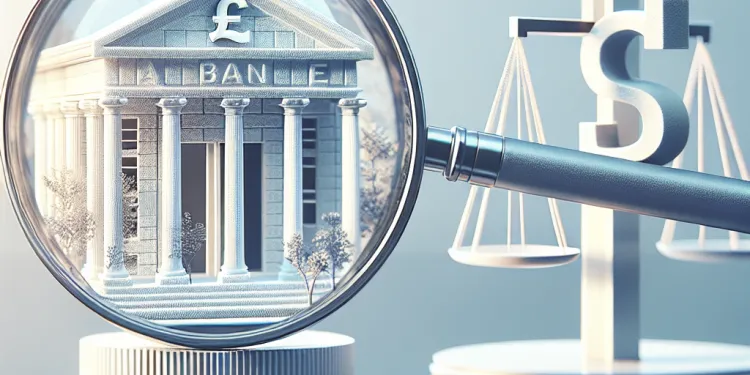
Why is there a call for greater transparency in banking fees?
Relevance: 83%
-

Calls for Greater Transparency in Banking Fees as Complaints Rise
Relevance: 80%
-

What initiatives are in place to address banking fee transparency?
Relevance: 80%
-
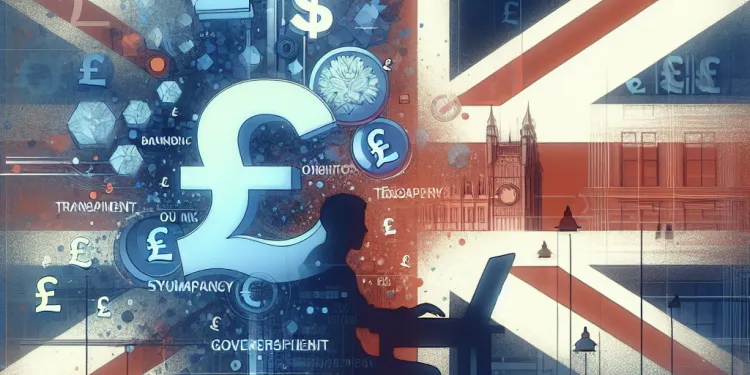
How can government policies influence transparency in banking fees?
Relevance: 78%
-

How does technology help in enhancing transparency in banking fees?
Relevance: 73%
-
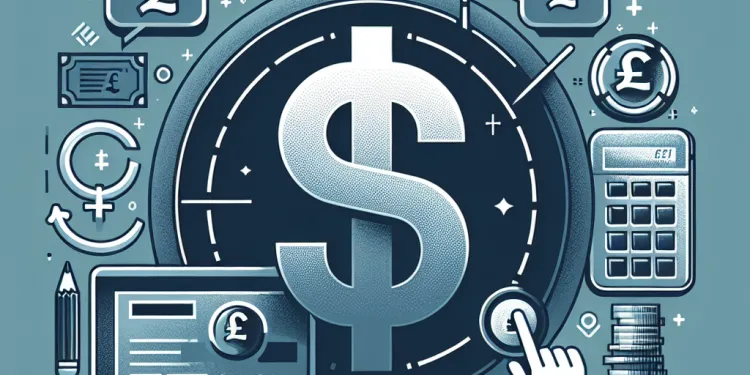
How can banks improve transparency regarding their fees?
Relevance: 71%
-
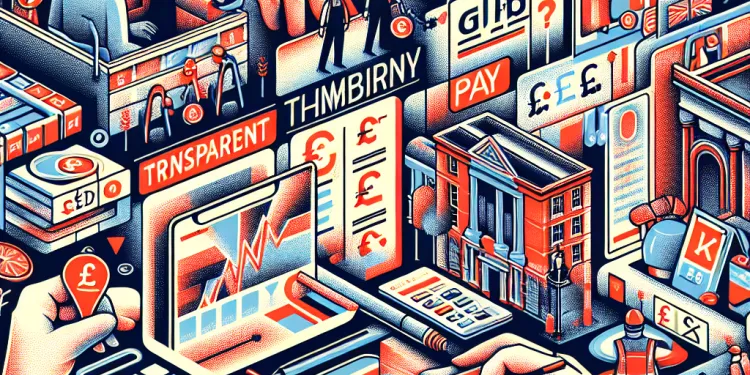
Do gig workers have the right to transparency in pay and fees?
Relevance: 66%
-
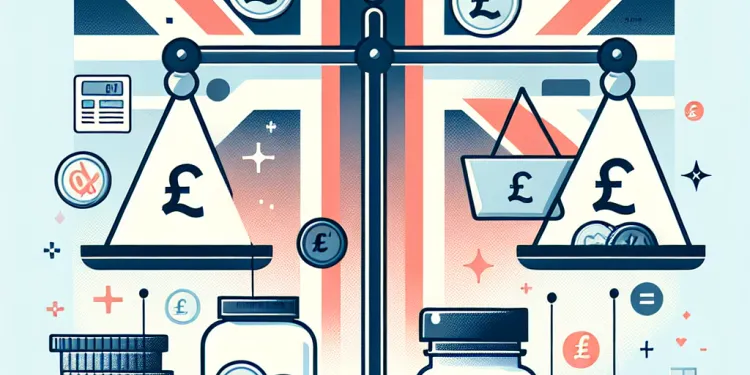
What role do regulatory bodies play in fee transparency?
Relevance: 61%
-
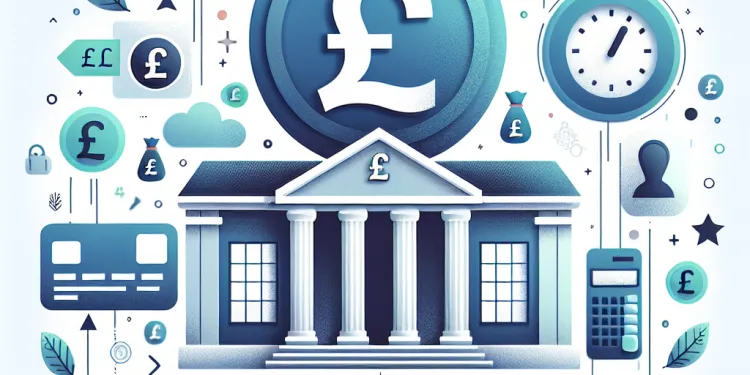
How do banking fees impact financial inclusion?
Relevance: 58%
-

How can consumers protect themselves from hidden banking fees?
Relevance: 57%
-

Are there specific banking services more prone to opaque fee structures?
Relevance: 55%
-
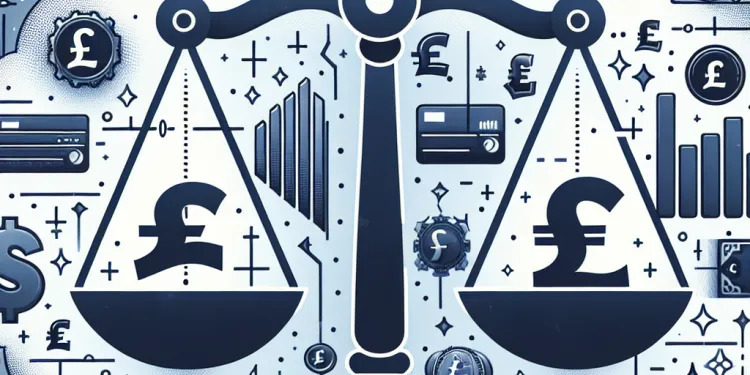
What are the consequences for banks not complying with transparency standards?
Relevance: 54%
-

Do all banks have the same fee structures?
Relevance: 53%
-
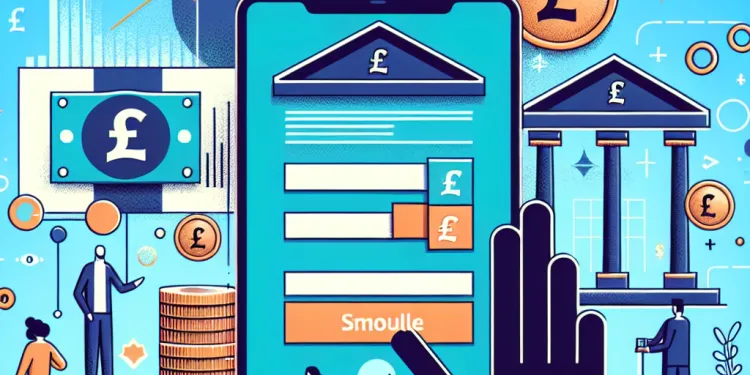
What feedback do customers give regarding banking fees?
Relevance: 53%
-
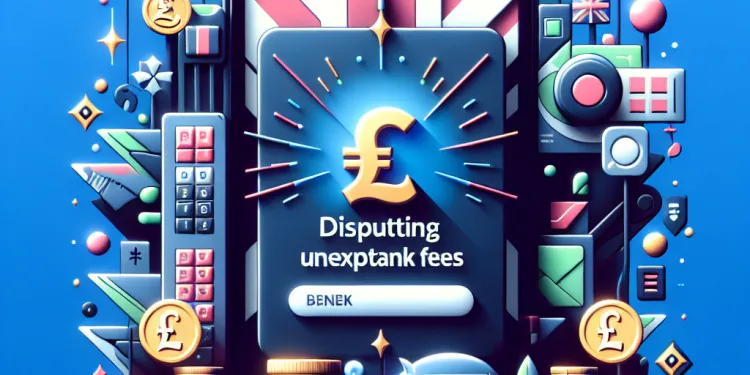
Can customers dispute unexpected banking fees?
Relevance: 52%
-

What role do customer service representatives play in fee transparency?
Relevance: 49%
-

Why are some banking fees unexpectedly high?
Relevance: 49%
-
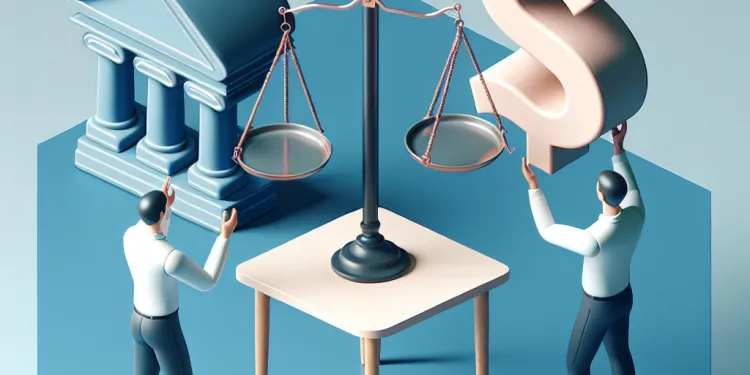
How can disputes over banking fees be resolved effectively?
Relevance: 49%
-

Do online banks have lower fees than traditional banks?
Relevance: 47%
-
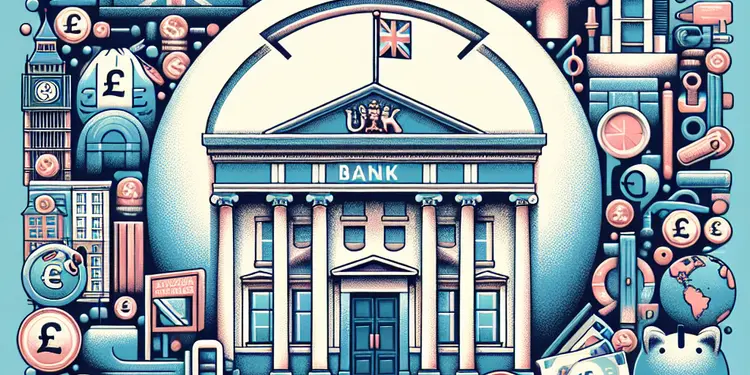
What fees should I avoid when choosing a new bank?
Relevance: 44%
-

What fees should I avoid when choosing a new bank?
Relevance: 43%
-

What are some examples of hidden fees in banking?
Relevance: 43%
-

Are there any fees to claim money back?
Relevance: 40%
-
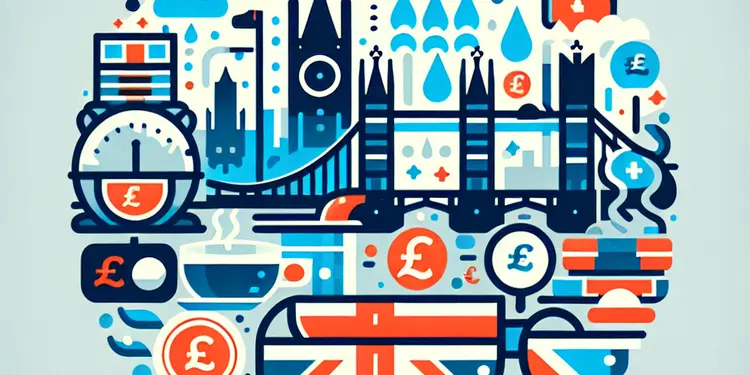
Are there any hidden fees I should be aware of?
Relevance: 38%
-

Are there any hidden fees with Monzo or Revolut?
Relevance: 38%
-
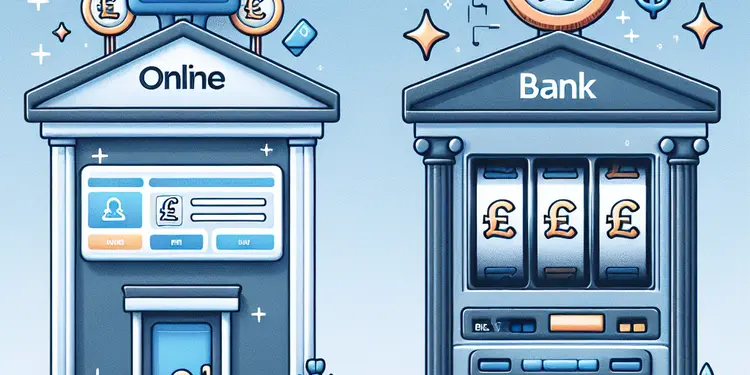
Are online banks cheaper than traditional banks?
Relevance: 37%
-
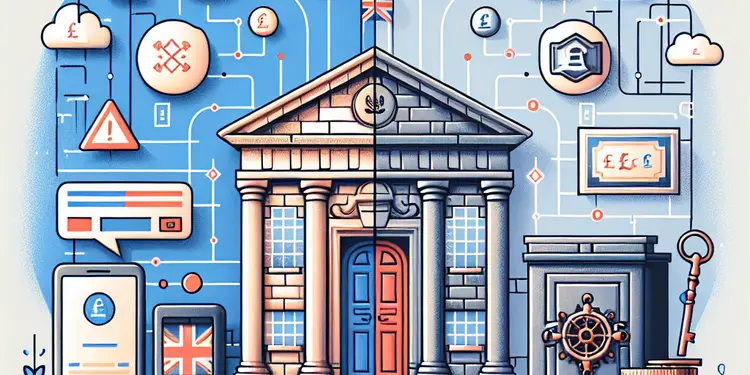
Are online banks cheaper than traditional banks?
Relevance: 35%
-
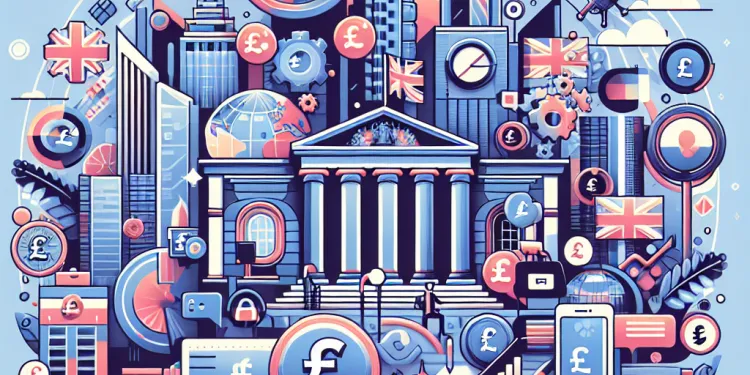
Can I use Monzo or Revolut for everyday banking?
Relevance: 33%
-

Can I save money by switching my bank?
Relevance: 32%
-
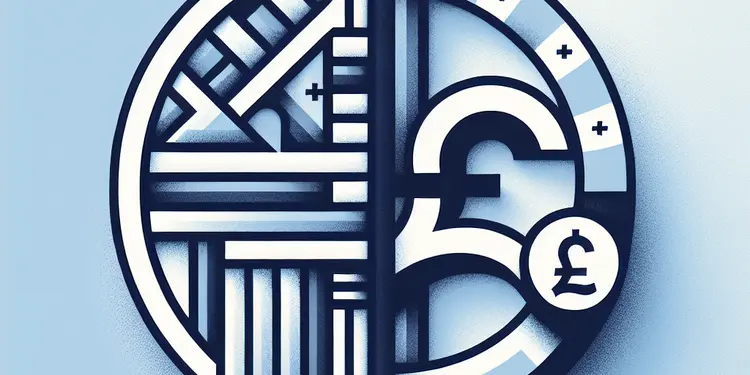
What's the difference between switching to a credit union versus a bank?
Relevance: 32%
-
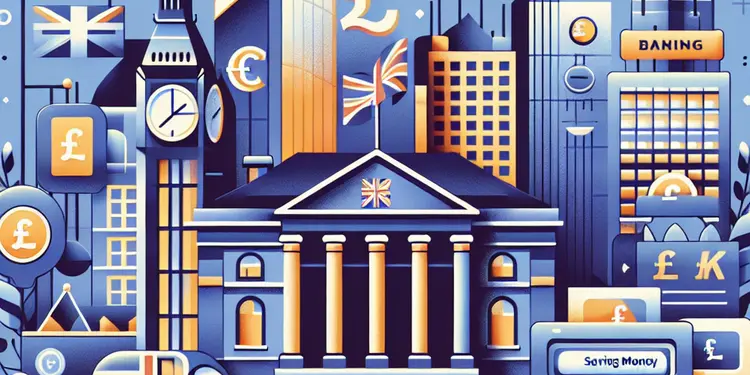
Can I save money by switching my bank?
Relevance: 32%
-

Can I save money by switching my bank?
Relevance: 31%
-
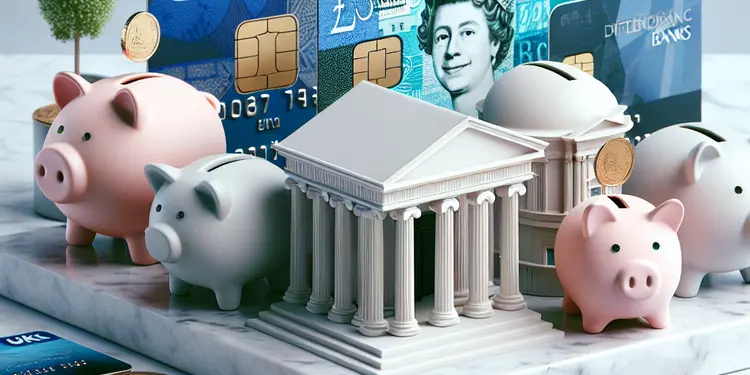
Are there benefits to having multiple bank accounts at different banks?
Relevance: 31%
-

Are there benefits to having multiple bank accounts at different banks?
Relevance: 31%
-

Is a cashback credit card right for me?
Relevance: 31%
-

How can I compare banks to find the best deal?
Relevance: 31%
-
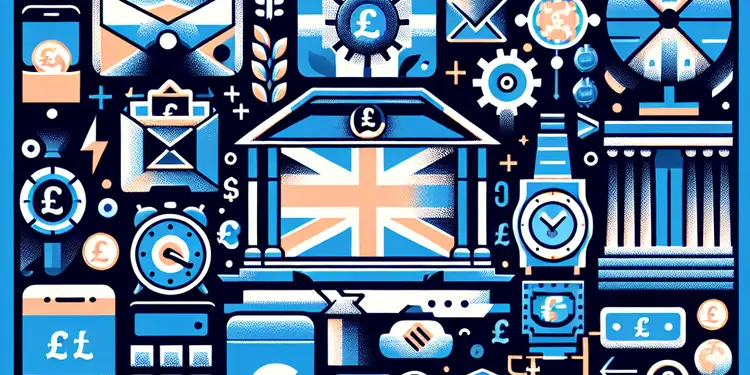
What are some common mistakes to avoid when switching banks?
Relevance: 31%
-

How transparent are water companies regarding infrastructure improvements?
Relevance: 31%
-

Can switching banks help me budget better?
Relevance: 31%
Introduction to Banking Fee Transparency
Banking fee transparency has become a crucial issue for consumers in the UK as hidden or poorly explained fees can lead to unexpected costs. Consumer rights groups are actively advocating for clearer communication and transparency regarding these fees, aiming to protect the interests of banking customers.
Consumer Rights Groups and Their Role
Consumer rights groups in the UK, such as Which?, Citizens Advice, and the Financial Conduct Authority (FCA) work tirelessly to ensure that consumers are treated fairly by banks and financial institutions. These groups conduct research, lobby for legislative changes, and provide guidance to consumers on how to handle unfair banking practices.
Research and Reports
Consumer rights organizations frequently conduct surveys and studies to understand the extent and impact of opaque banking fees. This research often results in comprehensive reports that highlight the problems consumers face, such as unexpected overdraft fees, foreign transaction fees, and charges for basic services. These reports are used to lobby banks and regulators for greater transparency and fairer practices.
Advocacy for Policy Changes
In response to findings from research, consumer rights groups press for policy changes at a governmental and regulatory level. They advocate for banking policies that require banks to disclose their fees in a clear and understandable manner. This includes pushing for regulations that mandate simplified fee schedules and require banks to notify consumers of fee changes well in advance.
Public Awareness Campaigns
Raising public awareness is another strategy employed by consumer rights groups. By informing consumers about their rights and how to spot unfair practices, these groups empower individuals to demand greater transparency from their banks. Campaigns often include educational materials, workshops, and media appearances to spread the message.
Collaborating with Regulators
Consumer rights groups often collaborate with regulators such as the FCA to develop and enforce rules that ensure consumer protection. This cooperation is vital in developing guidelines that require transparency in banking fees and ensure that any violations are addressed promptly.
Providing Direct Support to Consumers
In addition to advocacy and research, consumer rights groups provide direct support to individuals who have been affected by unclear banking fees. Through helplines, online resources, and personal advice, they assist consumers in resolving disputes and obtaining refunds for unfair charges.
Conclusion
Efforts by consumer rights groups in the UK to enhance banking fee transparency are multifaceted, focused on research, advocacy, public education, and direct support. Through these actions, they aim to create a more transparent banking environment where consumers can make informed financial decisions without the risk of hidden costs.
What Is Banking Fee Transparency?
Banking fee transparency means being clear about the money banks charge you. It is important so that people do not get surprised by hidden costs. In the UK, groups are working hard to help customers understand these fees. They want to make sure banks are clear about what they charge.
Who Are Consumer Rights Groups?
In the UK, there are groups like Which?, Citizens Advice, and the Financial Conduct Authority (FCA) that help people. They make sure banks treat people fairly. These groups study bank charges, push for new laws, and guide people who feel treated unfairly by their bank.
What Do These Groups Do?
Consumer rights groups study how banks charge money. They look at things like overdraft fees or extra charges for using money abroad. From their study, they write reports to show what is happening. They use these reports to ask banks to be more honest about fees.
How Do They Help Change Rules?
When these groups find problems, they talk to the government to change rules. They want banks to say what they charge clearly. They ask for rules that make banks show fees in a simple way, and tell people about changes before they happen.
How Do They Teach People?
Teaching people is another way these groups help. They tell people about their rights so they can spot bad bank practices. This can include lessons, booklets, and talking on TV or radio to spread the word.
Do They Work with Other Important Groups?
Yes, they work with groups like the FCA to make sure bank rules protect people. They help create rules that make banks transparent about fees and make sure banks follow the rules.
Can They Help Me Directly?
These groups also help people who are confused by fees. They have phone lines, websites, and people you can talk to for help. They can help you fix problems with your bank and sometimes help you get your money back.
Why Is This Important?
All these efforts help make banking clearer and safer in the UK. The goal is for you to know exactly what you are being charged for so you can make smart money choices without hidden fees.
Frequently Asked Questions
What are consumer rights groups?
Consumer rights groups are organizations that advocate for the rights and interests of consumers, ensuring they are treated fairly and have access to essential information.
Why is banking fee transparency important?
Transparency in banking fees allows consumers to understand the costs associated with their accounts, enabling them to make informed financial decisions.
What actions are consumer rights groups taking regarding banking fee transparency?
Consumer rights groups are advocating for clearer disclosure of fees, engaging in campaigns for regulatory changes, and educating consumers about their rights.
How do consumer rights groups educate people about banking fees?
They provide educational resources, workshops, and online materials to help consumers understand banking fees and compare different accounts.
Are consumer rights groups pushing for legislative changes?
Yes, they often lobby for legislation that mandates clearer disclosure and limits on certain types of banking fees.
Do consumer rights groups work with banks on fee transparency?
Some groups collaborate with banks to develop clearer communication methods, though their primary approach is often advocacy and consumer education.
What is fee transparency in banking?
Fee transparency involves banks providing clear, upfront information about any fees that might be charged to the customer.
Are consumer rights groups using technology to improve fee transparency?
Yes, they use technology to better inform consumers through mobile apps and online platforms that track and explain fees.
How can consumers report unclear banking fees?
Consumers can report such issues to consumer rights groups, financial regulatory bodies, or directly to the bank involved.
What sort of information do consumer rights groups want banks to provide?
They advocate for detailed breakdowns of fees, clear explanations of how fees are applied, and the circumstances under which they can change.
Do consumer rights groups offer any tools for comparing bank fees?
Yes, they often provide comparison tools or calculators online that help consumers evaluate fees from different banks.
Have consumer rights groups succeeded in reducing some banking fees?
In some cases, advocacy has led to reduced fees or the elimination of certain fees entirely due to public pressure.
What role does public awareness play in consumer rights groups' efforts?
Raising public awareness is critical to their efforts, as informed consumers are more likely to demand changes and take action.
Are consumer rights groups involved in legal actions against banks?
Yes, some groups have been part of class-action lawsuits seeking compensation for unfair or hidden fees.
Do consumer rights groups collaborate internationally on banking transparency?
Some groups collaborate with international counterparts to ensure global banking practices are fair and transparent.
What specific regulations are consumer rights groups advocating for?
Groups often advocate for regulations that require full disclosure of all fees, caps on certain fees, and mandatory notices of fee changes.
How can consumers support the efforts of consumer rights groups?
Consumers can support these groups by becoming members, participating in campaigns, and staying educated about consumer rights.
What is the impact of unclear banking fees on consumers?
Unclear fees can lead to unexpected charges, underscoring the importance of transparency for consumer financial health.
Have banking fee disclosure practices improved in recent years?
In some regions, practices have improved due to pressure from consumer groups and new regulations, but challenges remain.
What are the long-term goals of consumer rights groups concerning banking fees?
The long-term goals include ensuring all consumers have access to clear, fair fee information and fostering a more transparent banking environment.
What Are Consumer Rights Groups?
Consumer rights groups are teams that help shoppers. They work to make sure people get fair treatment when they buy things. These groups can help if you have a problem with something you bought. They give advice and make sure companies follow the rules.
Tools to help you understand:
- Ask someone to explain it in a simple way.
- Look for videos or pictures that show how these groups work.
- Find books or websites that use easy words.
Consumer rights groups are teams that help people who buy things. They make sure buyers are treated well and get important information.
Why is it good to know about bank fees?
Understanding bank fees helps you make better choices with your money.
Knowing fees means no surprises when you spend or save money.
Asking the bank questions can help you understand fees better.
Using a calculator can help you see how fees might affect your savings.
Being clear about bank fees helps people understand how much their accounts cost. This helps them make smart money choices.
What are groups doing about clear banking fees?
Groups that help people with rights are working on making bank fees clear. They want banks to show the cost of fees so everyone can understand.
Here is how they help:
- Talking to Banks: They ask banks to make fees easy to read.
- Telling People: They tell people about bank fees so they know more.
- Helping with Problems: They help if someone has trouble with fees.
If you want to know more or need help, you can:
- Ask someone you trust to explain bank fees.
- Use easy-to-read guides on banking.
- Look for help online using clear resources.
Groups that help people understand their buying rights want to make fees easier to see and understand. They are working on changing rules and teaching people about their rights when they buy things.
How do groups help people understand bank fees?
Groups teach people about the costs when you use a bank.
These groups use easy words and pictures.
You can watch videos and read stories.
Groups might have meetings to talk about these things.
They also give leaflets with simple steps.
They give learning tools, classes, and online help. This is so people can learn about bank fees and look at different bank accounts.
Are groups trying to change the laws to help shoppers?
Yes, they often ask the government to make rules. These rules make it easier to see banking fees. The rules also limit some fees that banks can charge.
Do groups help people understand bank fees?
Some groups help people know what banks charge. These groups talk to banks so people can easily see and understand the fees.
Tip: Use tools like picture cards or simple charts to help understand fees better. Ask a friend or family member to explain if it's still not clear.
Some groups work with banks to create simpler ways to communicate. They also try hard to teach and help people understand more about money and banking.
What does fee transparency in banking mean?
"Fee transparency" in banking means that the bank is clear and open about any costs you have to pay. When you know exactly what fees there are, you can see where your money is going.
Here are some tools and tips to help you understand:
- Ask Questions: If you don’t understand a fee, ask someone at the bank to explain it.
- Use Bank Apps: Many banks have apps that show you your fees clearly.
- Read Bank Statements: Check your bank statements regularly to see all charges.
- Talk to a Friend: Sometimes asking a friend or family member for help can make things clearer.
Fee transparency means banks should tell customers about any charges in a clear and simple way before they happen.
Are groups helping people understand money better using technology?
Yes, they use technology to help people understand fees. They have apps on phones and websites that show and explain the fees.
How can people tell about confusing bank fees?
If you see a bank fee you don’t understand, you can ask for help. Here’s what you can do:
- Talk to someone at your bank. They can explain the fees to you.
- If you still don’t understand, you can write a letter or email to the bank to ask for more help.
- Another way to get help is by using a service, like calling a helpline for advice.
Remember, it’s okay to ask questions if something is hard to understand!
You can tell someone if you have a problem with your bank. You can talk to a group that helps people, a money boss, or the bank itself.
What information do people who help protect bank customers want the banks to give?
People who help protect bank customers want banks to tell us:
- How much money it costs to have an account.
- If there are any fees for using the account.
- How to keep our money safe.
- What happens if there is a problem and how to get help.
Here are some tips to understand bank information:
- Ask someone you trust to explain things to you.
- Look for simple guides or videos online.
- Use websites or apps that help with reading.
They want fees to be explained in detail with a clear breakdown, telling you how they work and when they might change.
Can groups that help people with money problems give tools to check bank fees?
Here is a simpler version of the question. If you need help understanding bank fees, you can ask a grown-up or a friend to explain. You can also use tools like picture charts or apps that show things in a simple way.
Yes, they often have tools or calculators online. These help people compare fees from different banks.
Have groups that help people with money problems made banks lower some fees?
Sometimes, when people speak up and ask for changes, it can help lower costs or even get rid of some costs completely. This happens because lots of people work together to make things better.
How Does Knowing Help People Stand Up for Their Rights?
It's important for people to know about their rights. If people understand their rights, they can stand up for themselves. This is where consumer rights groups come in. They help people learn about their rights. When people know more, they can make better choices and get help when they need it.
To help understand this topic even more, try using pictures or videos. Reading together with a friend can also make learning easier and fun.
It is very important to tell people what is happening. When people know more, they can ask for changes and do something about it.
Do groups that help shoppers take banks to court?
Some groups help people who shop. Sometimes, these groups help if banks do something wrong. They can take banks to court to fix things. If you need help with a bank, you can ask these groups for support. They use lawyers to make sure banks follow the rules. You can also use tools like simple language apps or talk to a friend if you need more help understanding.
Yes, some people have joined together to ask for money back because they were charged unfair or hidden fees.
Do groups that help people with their shopping rights work together around the world to make banks clear and honest?
Some groups work together with people in other countries to make sure banks are honest and fair all around the world.
What rules do consumer rights groups want?
Consumer rights groups want new rules. These rules help protect people when they buy things. They can include:
- Safe products: Make sure all products are safe to use.
- Clear information: Give simple and true information about products.
- Fair prices: Keep prices fair and honest.
To understand more, you can use tools like:
- Audio books: Listen to information instead of reading it.
- Videos: Watch videos that explain rules.
- Ask someone: Talk to someone who can explain more.
Groups often ask for rules that say everyone must show all costs clearly. They want to limit some costs and make sure people know when costs change.
How can people help consumer rights groups?
Here are some ways you can help:
- Join a consumer rights group to learn more about your rights.
- Share information about these groups with friends and family.
- Support their events or meetings by attending or volunteering.
- Speak up if you notice bad practices by companies.
- Use tools like websites or apps that give advice on consumer rights.
People can help these groups in a few ways:
- Join the group as a member.
- Take part in their projects and activities.
- Learn about your rights as a shopper.
Here are some helpful tips:
- Use simple tools like reminder notes to stay updated.
- Watch short videos to learn more about your rights.
- Ask someone you trust to explain new information.
How do confusing bank fees affect people?
When bank fees are not clear, it can cause problems for people. They might not know how much money the bank will take from them. This can make it hard to plan their spending.
If you have trouble understanding bank fees, you can ask someone you trust to explain them. Using simple words and examples can help. You can also use online tools or apps to track your spending and see how much the bank fees are.
Sometimes, fees are not clear. This can mean surprise extra charges. It is important to know all costs to keep your money safe.
Have banks gotten better at telling us about fees?
Banks sometimes charge money for their services. This is called a fee.
It's important that banks tell us clearly about these fees.
In the past, people said banks did not explain fees well.
We want to know if banks have gotten better at this.
If you find it hard to understand, you can ask someone to help explain.
You can also use tools that read text out loud or make it bigger.
In some places, things are getting better because people and new rules are helping. But there are still some problems.
What do consumer rights groups want for the future about banking fees?
People who help protect buyers want to fix banking fees. They have ideas to make things better.
- They want banks to be fair with their fees.
- They want fees to be clear and easy to understand.
- They want to lower the cost of fees for everyone.
Tools to help:
- Talk to someone who understands banking.
- Use online tools to compare bank fees.
- Ask questions if something is not clear.
Our big goals are to help everyone understand bank fees better. We also want banks to be honest and clear about their services.
There are tools to help. You can use apps or talk to a money helper if you need support.
Useful Links
This website offers general information and is not a substitute for professional advice.
Always seek guidance from qualified professionals.
If you have any medical concerns or need urgent help, contact a healthcare professional or emergency services immediately.
Some of this content was generated with AI assistance. We’ve done our best to keep it accurate, helpful, and human-friendly.
- Ergsy carfully checks the information in the videos we provide here.
- Videos shown by Youtube after a video has completed, have NOT been reviewed by ERGSY.
- To view, click the arrow in centre of video.
- Most of the videos you find here will have subtitles and/or closed captions available.
- You may need to turn these on, and choose your preferred language.
- Go to the video you'd like to watch.
- If closed captions (CC) are available, settings will be visible on the bottom right of the video player.
- To turn on Captions, click settings .
- To turn off Captions, click settings again.
More Items From Ergsy search
-

What actions are consumer rights groups taking regarding banking fee transparency?
Relevance: 100%
-

Why is there a call for greater transparency in banking fees?
Relevance: 83%
-

Calls for Greater Transparency in Banking Fees as Complaints Rise
Relevance: 80%
-

What initiatives are in place to address banking fee transparency?
Relevance: 80%
-

How can government policies influence transparency in banking fees?
Relevance: 78%
-

How does technology help in enhancing transparency in banking fees?
Relevance: 73%
-

How can banks improve transparency regarding their fees?
Relevance: 71%
-

Do gig workers have the right to transparency in pay and fees?
Relevance: 66%
-

What role do regulatory bodies play in fee transparency?
Relevance: 61%
-

How do banking fees impact financial inclusion?
Relevance: 58%
-

How can consumers protect themselves from hidden banking fees?
Relevance: 57%
-

Are there specific banking services more prone to opaque fee structures?
Relevance: 55%
-

What are the consequences for banks not complying with transparency standards?
Relevance: 54%
-

Do all banks have the same fee structures?
Relevance: 53%
-

What feedback do customers give regarding banking fees?
Relevance: 53%
-

Can customers dispute unexpected banking fees?
Relevance: 52%
-

What role do customer service representatives play in fee transparency?
Relevance: 49%
-

Why are some banking fees unexpectedly high?
Relevance: 49%
-

How can disputes over banking fees be resolved effectively?
Relevance: 49%
-

Do online banks have lower fees than traditional banks?
Relevance: 47%
-

What fees should I avoid when choosing a new bank?
Relevance: 44%
-

What fees should I avoid when choosing a new bank?
Relevance: 43%
-

What are some examples of hidden fees in banking?
Relevance: 43%
-

Are there any fees to claim money back?
Relevance: 40%
-

Are there any hidden fees I should be aware of?
Relevance: 38%
-

Are there any hidden fees with Monzo or Revolut?
Relevance: 38%
-

Are online banks cheaper than traditional banks?
Relevance: 37%
-

Are online banks cheaper than traditional banks?
Relevance: 35%
-

Can I use Monzo or Revolut for everyday banking?
Relevance: 33%
-

Can I save money by switching my bank?
Relevance: 32%
-

What's the difference between switching to a credit union versus a bank?
Relevance: 32%
-

Can I save money by switching my bank?
Relevance: 32%
-

Can I save money by switching my bank?
Relevance: 31%
-

Are there benefits to having multiple bank accounts at different banks?
Relevance: 31%
-

Are there benefits to having multiple bank accounts at different banks?
Relevance: 31%
-

Is a cashback credit card right for me?
Relevance: 31%
-

How can I compare banks to find the best deal?
Relevance: 31%
-

What are some common mistakes to avoid when switching banks?
Relevance: 31%
-

How transparent are water companies regarding infrastructure improvements?
Relevance: 31%
-

Can switching banks help me budget better?
Relevance: 31%


